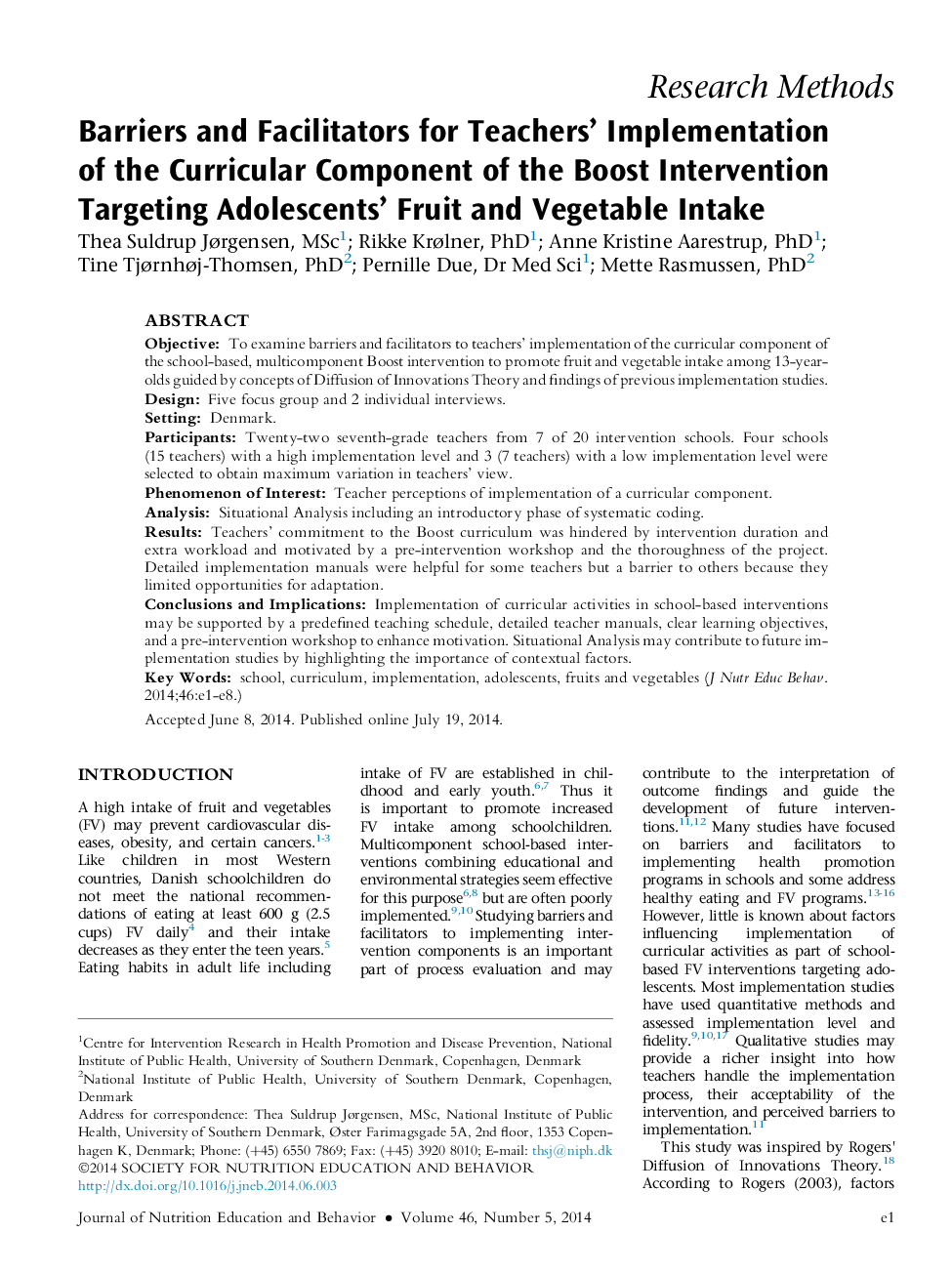| کد مقاله | کد نشریه | سال انتشار | مقاله انگلیسی | نسخه تمام متن |
|---|---|---|---|---|
| 361262 | 620595 | 2014 | 8 صفحه PDF | دانلود رایگان |
ObjectiveTo examine barriers and facilitators to teachers' implementation of the curricular component of the school-based, multicomponent Boost intervention to promote fruit and vegetable intake among 13-year-olds guided by concepts of Diffusion of Innovations Theory and findings of previous implementation studies.DesignFive focus group and 2 individual interviews.SettingDenmark.ParticipantsTwenty-two seventh-grade teachers from 7 of 20 intervention schools. Four schools (15 teachers) with a high implementation level and 3 (7 teachers) with a low implementation level were selected to obtain maximum variation in teachers' view.Phenomenon of InterestTeacher perceptions of implementation of a curricular component.AnalysisSituational Analysis including an introductory phase of systematic coding.ResultsTeachers' commitment to the Boost curriculum was hindered by intervention duration and extra workload and motivated by a pre-intervention workshop and the thoroughness of the project. Detailed implementation manuals were helpful for some teachers but a barrier to others because they limited opportunities for adaptation.Conclusions and ImplicationsImplementation of curricular activities in school-based interventions may be supported by a predefined teaching schedule, detailed teacher manuals, clear learning objectives, and a pre-intervention workshop to enhance motivation. Situational Analysis may contribute to future implementation studies by highlighting the importance of contextual factors.
Journal: Journal of Nutrition Education and Behavior - Volume 46, Issue 5, September–October 2014, Pages e1–e8
